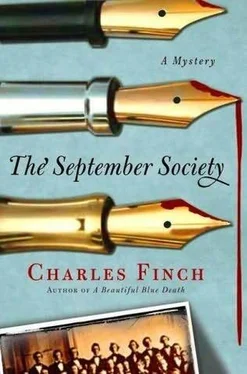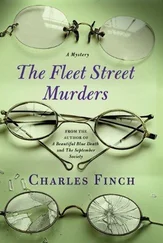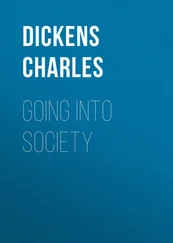Charles Finch - The September Society
Здесь есть возможность читать онлайн «Charles Finch - The September Society» весь текст электронной книги совершенно бесплатно (целиком полную версию без сокращений). В некоторых случаях можно слушать аудио, скачать через торрент в формате fb2 и присутствует краткое содержание. Жанр: Исторический детектив, на английском языке. Описание произведения, (предисловие) а так же отзывы посетителей доступны на портале библиотеки ЛибКат.
- Название:The September Society
- Автор:
- Жанр:
- Год:неизвестен
- ISBN:нет данных
- Рейтинг книги:4 / 5. Голосов: 1
-
Избранное:Добавить в избранное
- Отзывы:
-
Ваша оценка:
- 80
- 1
- 2
- 3
- 4
- 5
The September Society: краткое содержание, описание и аннотация
Предлагаем к чтению аннотацию, описание, краткое содержание или предисловие (зависит от того, что написал сам автор книги «The September Society»). Если вы не нашли необходимую информацию о книге — напишите в комментариях, мы постараемся отыскать её.
The September Society — читать онлайн бесплатно полную книгу (весь текст) целиком
Ниже представлен текст книги, разбитый по страницам. Система сохранения места последней прочитанной страницы, позволяет с удобством читать онлайн бесплатно книгу «The September Society», без необходимости каждый раз заново искать на чём Вы остановились. Поставьте закладку, и сможете в любой момент перейти на страницу, на которой закончили чтение.
Интервал:
Закладка:
Lenox laughed. “Better that I did than you found your way to danger again.”
“Not much better,” she said and squeezed his hand.
Saved-and ruined-by Toto. “Is Marian better, after all?” she asked. “I did love Maid Marian when I was a girl. Marian McConnell.”
“Malory, Margaret, Marian-are you determined to make this girl’s name into a nursery rhyme? Girl! What am I saying! What if it’s a boy!” said McConnell.
“Oh, if it’s a boy we’ll call it Thomas, but I do hope it’s a girl!”
“If I were the Earl of Cadogan you wouldn’t say that.”
“That’s why I thank the Lord every evening in my prayers that you’re not the Earl of Cadogan. Well, that and his awful drooping chin.”
This forced a smile to McConnell’s face. “Well,” he said, relenting a bit, “how about Elizabeth.”
“Elizabeth! That is dear! Jane, do you like it?”
Before the conversation got carried away on another tide of speculation, Lenox took his leave, thanking McConnell as he did so for having forged another link (as Stamp’s strange and flustered appearance had) in the increasingly strong chain between the September Society and both Payson father and Payson son. But why? Why? Motive was the great mystery here. Motive, and the whereabouts of Bill Dabney.
When he arrived home Stamp had gone, replaced in the armchair by Dallington, who was again reading a copy of Punch. Strange how quickly his presence had come to seem natural.
“Oh, hullo, Lenox,” he said. “Been out for a swim?”
“It’s raining, actually.”
“You didn’t fall in anything?”
Despite himself Lenox laughed. “Have you found out about Lysander’s week?”
“Yes,” said Dallington. “He’s not our man, unfortunately. At least, he didn’t wield the garrote that killed George.”
“Can you be sure of that?”
Dallington consulted a small notebook, bound in calf’s leather and full of surprisingly careful writing. “On the precise day in question he was in the city of Bath, visiting an elderly aunt who lives in the Royal Crescent and intends to leave him her small fortune.”
“Did he spot you?”
“No, he didn’t.”
“Ah, excellent. How did you come by your information?”
“The usual mix-train conductors, shop salesmen.”
“I must say, I’m impressed by your precocity.”
“I’ve read a lot of mystery stories, you see.” He pointed at Punch . “These magazines are my weakness.”
“Your one weakness, then?”
Dallington grinned devilishly. “That’s right.”
“What else did you find out about Lysander?”
“Nothing all that interesting, unfortunately. He keeps up a pretty steady daily routine between one or two clubs, a restaurant called Marilyn’s, which is just by St. Martin-in-the-Fields, and Major Butler’s house.”
“Butler’s back on the premises?”
“Never left.”
“Of course, of course. Does Lysander have a girl? Someone he strolls around Hyde Park with?”
“Not as far as I can tell. His life seems pretty monkish. He’s forever reading some long, dull history of the wars nobody cares about.”
“Which are those?”
“Oh, in the East, or the little wars when Spain got snippy, those. Give me the Crusades.”
“Or Punch.”
“Or Punch. Exactly.”
“Thanks, Dallington. That’s a great help. Now, would you mind another task?”
The young lord shook his head.
“There’s a chap called Maran…”
CHAPTER FORTY-TWO
W hy September?
Over supper at home, Lenox kept lowering Felix Holt to ask himself that one question. The club was called the September Society, it had its formal annual meeting in September-but there was no explicit link between the club’s purpose and its name. After pushing his plate aside, he walked to the farthest bookcase in his study and pulled down volume S of the encyclopedia.
A small assortment of facts about the month of September: It is the month of the autumnal equinox; its birthstone is the sapphire; its flower the morning glory; in 1752, September 2 was followed by September 14 because of an alteration in the calendar; Queen Elizabeth was born on the seventh of the month, 1533; Samuel Johnson had been born on the nineteenth, 260 years later; the Great Fire, of course, as he had discussed with Chaffanbrass; William the Conqueror had landed on English soil in late September 1066; dozens of harvest festivals had happened for thousands of years in September; the traditional month to dine on goose; acorns on the ground traditionally indicated a snowy winter; on Holy Rood Day, the fourteenth, children were by long custom permitted to leave school so that they could gather nuts.
Lenox read this with mild interest. For good measure, when he returned volume S of his encyclopedia to its usual slot he took down volume R to look up the color red, as he had been meaning to do. The information was interesting: Red was the first color the cavemen had used in their paintings, for example; in cartography red was the symbol of Britain’s empire; the Roman armies, as Lenox had known, wore red so that their blood would be invisible, a valuable illusion both for morale and against an enemy; the Queen’s new “mail boxes” were red; in Russia, red had always been the color that denoted great beauty. Interesting, but useless. It seemed clear that those red objects referred to Red Kelly-and it seemed clear that he needed to turn his attention back to the porter.
As he held the book in his hand, there was a knock on the door. A moment later Mary appeared with Inspector Jenkins again in tow.
“Hello, Lenox, how do you do?” said the youthful gentleman. “I hope I’m not disturbing you after your supper?”
“No, not at all, not at all. Won’t you come in?” The two men sat by Lenox’s desk. “You handled that little Emerson matter?”
“Yes.”
“It was Johannsen, of course.”
“How did you know?”
“The papers. I would have been to see you if it hadn’t come clear.”
“How’s your own work?”
“I was just thinking about the case when you arrived, actually. Without much success I’m afraid.”
“That’s what brings me round, actually. I wondered whether you might take a short trip with me.”
“Of course. Where to?”
“To Fulham.”
This was an area of London southwest of Charing Cross, near Hammersmith Bridge. Its reputation was improving to an extent, but at its pinnacle of debauchery in the last century it had been a place full of gambling houses, brothels, and drinking establishments where the infamous Regency cads had run riot to the consternation of their elders. It was still liveliest far past dark, particularly by the river. Lenox had been on two separate cases there, one involving the assault of a prostitute, the other the robbery of a saloon by a masked man who had eventually turned out to be the oldest son of and heir to the Earl of Downe.
“Fulham? Is that so?”
“On the case,” said Jenkins quickly. “A matter involving the case.”
“I should hope so,” said Lenox, smiling.
“Shall we discuss it on the way? I have a brougham outside.”
As they went south toward the Thames, Jenkins told Lenox more about their mission.
“I’m taking you to see a very interesting man named Laurence Matte. German by ancestry, though he and his father were both born in Hertfordshire. He grew up quite poor-father kept a struggling stables for carriage horses-but when he was eighteen he invented a new kind of breech-loading rifle mechanism and sold the patent for a great deal of money.”
“Eighteen!”
“His father kept guns and horses for some of the minor gentry without their own land, and the lad’s job as a boy was to clean the rifles. He’s told me he invented the breech-loader by the time he was thirteen but had to wait to apply for the patent. He may have been boasting, though. He’s a terrible boaster.”
Читать дальшеИнтервал:
Закладка:
Похожие книги на «The September Society»
Представляем Вашему вниманию похожие книги на «The September Society» списком для выбора. Мы отобрали схожую по названию и смыслу литературу в надежде предоставить читателям больше вариантов отыскать новые, интересные, ещё непрочитанные произведения.
Обсуждение, отзывы о книге «The September Society» и просто собственные мнения читателей. Оставьте ваши комментарии, напишите, что Вы думаете о произведении, его смысле или главных героях. Укажите что конкретно понравилось, а что нет, и почему Вы так считаете.












